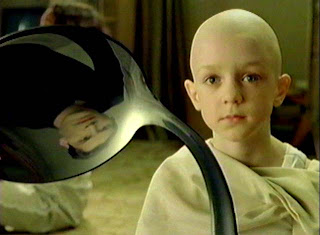I found a nice
critique of the Official Scrabble Players Dictionary
in one of the reviews on Amazon. It's by Daniel Pratt, a lexicographer and mathematician who placed second in the first national Scrabble tournament in 1978. He also developed the rating system used for Scrabble players in tournaments. It was around the same time that the first Official Scrabble Players Dictionary was created. Pratt is therefore well qualified for making such a critique.
One of his strongest points is something that I had begun to suspect: The OSPD adds new words when they appear in dictionaries, but does not delete old words once they become obscure enough to not appear in modern dictionaries:
The Official Scrabble Players Dictionary (OSPD) is a compilation of words from twelve U.S. college dictionaries from the last four decades. Four are still in print and, as the descendants of seven of the others, contain most but by no means all of their contributions. As a result, pronunciations, etymologies, and full definitions are no longer available for many entries, especially those found only in the source that has been out of print for a quarter century. NSA members like to twitter that they don't play your grandmother's Scrabble, but in many respects they're using her dictionary. It's a shame they can't bring the game into the 21st century.
He also points out some of the most ridiculous entries, but the word that sticks out most in my mind is one that was pointed out elsewhere: "AARRGHH" is listed in the OSPD, like it is an actual word.
Ammon Shea takes a different position. After reading the entire Oxford English Dictionary (which feat he documented in his book,
Reading the OED: One Man, One Year, 21,730 Pages), he describes returning to Scrabble for the first time in many years and
how he finds that the list of allowed words no longer makes sense to him:
Why, for instance, does the Scrabble Players Dictionary list both howf and howff (Scottish words defined as ‘a place frequently visited’), but neglects to include many of the variants that Joseph Wright has in his English Dialect Dictionary, such as houf, hauf, hofe, hoff, houf, houck? I tried to play swad (a bumpkin, or fat person), which appears in most of the dictionaries I own, on three different occasions before I remembered that the Scrabble game wouldn’t recognize it.
He then goes on to observe:
Some complain that the Scrabble Players Dictionary is too inclusive; I find the opposite to be true. Rather than only let in some of the strange words, they should have opened the floodgates and allowed them all. It has become a game of memory, rather than a game of language.
Clearly, you can't please everybody.
In response to comments on his review,
Pratt recommends several replacement dictionaries
- the American Heritage College Dictionary, the American Heritage High School Dictionary, the New Oxford American Dictionary, and the Canadian Oxford Dictionary - with a discussion of the advantages of each.
 and may not be the best choice for a reference. The official Bananagrams rules say that "any available dictionary may be used" to decide whether words are acceptable. Some better dictionaries to use with Bananagrams are listed here.
and may not be the best choice for a reference. The official Bananagrams rules say that "any available dictionary may be used" to decide whether words are acceptable. Some better dictionaries to use with Bananagrams are listed here.
![If I stay there can be no party. I must be out there in the night, staying vigilant. Wherever a party needs to be saved, I'm there. Wherever there are words that need anagramming, I'm there. But sometimes I'm not because I'm out there in the night staying vigilant, watching, lurking, running, jumping, hurdling, sleeping. No, I can't sleep. You sleep. I'm awake. I don't sleep. I don't blink. Am I a bird? No. I'm a banana. I am Bananagrammer. Or am I? Yes, I am Bananagrammer. [applies chapstick]](https://blogger.googleusercontent.com/img/b/R29vZ2xl/AVvXsEgI5Yf53B1clpF3cLb11zYrIhaMn1Grv8uDvAhy_9vwjTU-CZCcX5MYmPwX-TnSagBaWwvJpIWeVsOP3q4r6k_HYnuRcVAOou4fwCkkVU7Or2NXmaWfZS6CjtkPnaeIdq3-wvdOC2DJb-Ra/s400/BGR-plot-medium.png)
